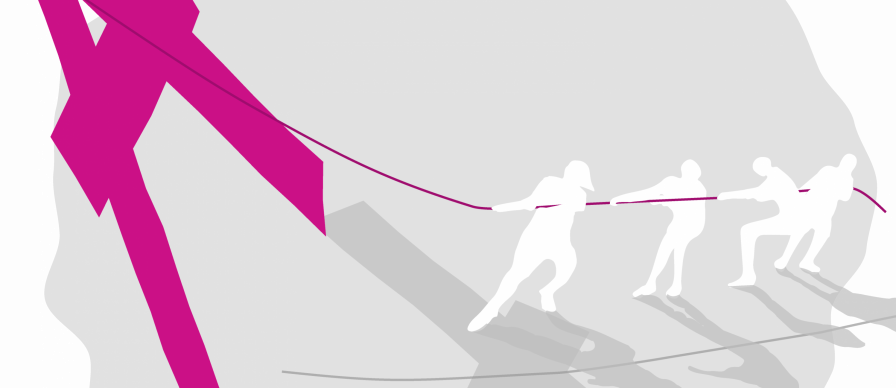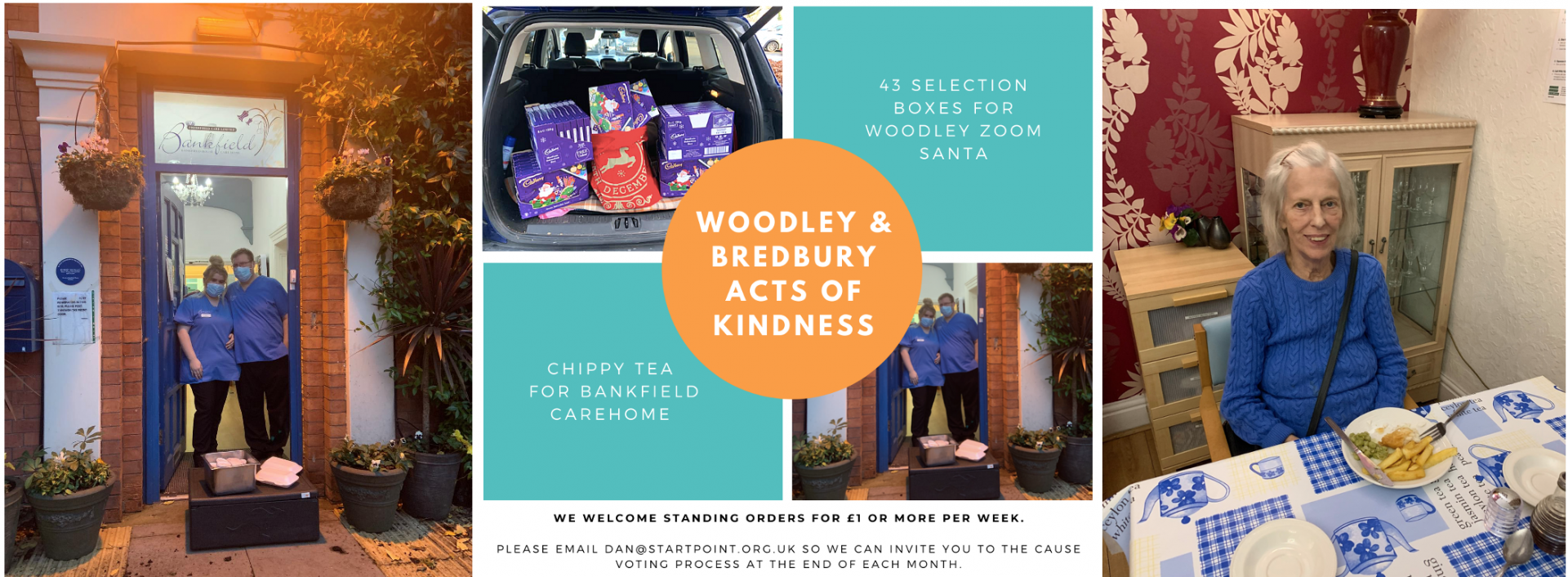They were inspired by an idea they read about called 500 Acts of Kindness, a scheme to raise and donate small amounts of money via social media groups. They felt it would help them develop their group, support their local community and provide a way for people that had received mutual aid support to be able to give back
The idea is simple. People that want to get involved agree to donate £1 on a regular basis, usually once a week. This is done by standing order where possible, but in Woodley they also have a donation box in the local chip shop, which is open for takeaways during the pandemic. Some people don’t give £1 per week, more like £1 per month or just occasionally. A local church donated its Sunday collection one week.
Everyone that can join a Facebook group, but otherwise can participate by email or text. Each month, members can nominate a local cause that they want money donated to. This may be a local group, charity, institution or it could even be an individual or family in need of support. At the end of every month, all scheme members vote on who they want to receive the money. Often the money ends up being split between more than one recipient.
The Acts of Kindness scheme only got up and running in October and already they are raising over £200 per round. Recipients are usually very local and often the money provides a treat or demonstrates appreciation to local volunteers or workers. For example, recent gifts have gone to NHS staff at a local GP surgery to say thank you, a Special Needs school for Christmas decorations, a local city farm for a disabled children’s event to be held in January, and to support Christmas care packages for care-leavers. They have also delivered a fish and chip treat to local care home residents.
The scheme was initially supported by the community organisers at Starting Point, the local Social Action Hub, using their bank account to hold the money and administer the voting. Management is now being transferred to the Organising Group themselves. This is developing their leadership and strengthening their organisation.
The scheme has evolved using the principles of community organising. For example, in the original 500 Acts scheme a small group of administrators make the decision every week about where the money will go. In the Woodley and Bredbury scheme, there is a democratic voting system and full transparency as voting takes place in the Facebook group and by email. Everyone gets two votes. This came about after listening to members about what they wanted.
“Acts of Kindness has had a lot of love from local people. When I’m out and about in the area, people say how nice it is to do it regularly and how they learn about things in the community they didn’t know about. It’s a way of spreading that joy at a time when we all need it.” says Starting Point community organiser, Dan
Dan isn’t sure where the scheme will go next, but he is clear that it is sparking new connections and directions for the Organising Group. The scheme has proved very successful in reaching out to new people that haven’t yet heard about community organising and there is a demand for community organising training. Through the donations, new connections have been made to local groups and businesses. One exciting plan that the Organising Group have is to conduct a ‘community census’ next year, the national census year. They want to do their own research about the issues in their community that are becoming visible through the scheme – such as access to food, support for care leavers, debt, and access to services. They are also exploring the idea of community wealth and how they can control more of their local assets and resources.
Most importantly, people love being part of the Acts of Kindness scheme, as one member says: “I think it makes such a difference”.



